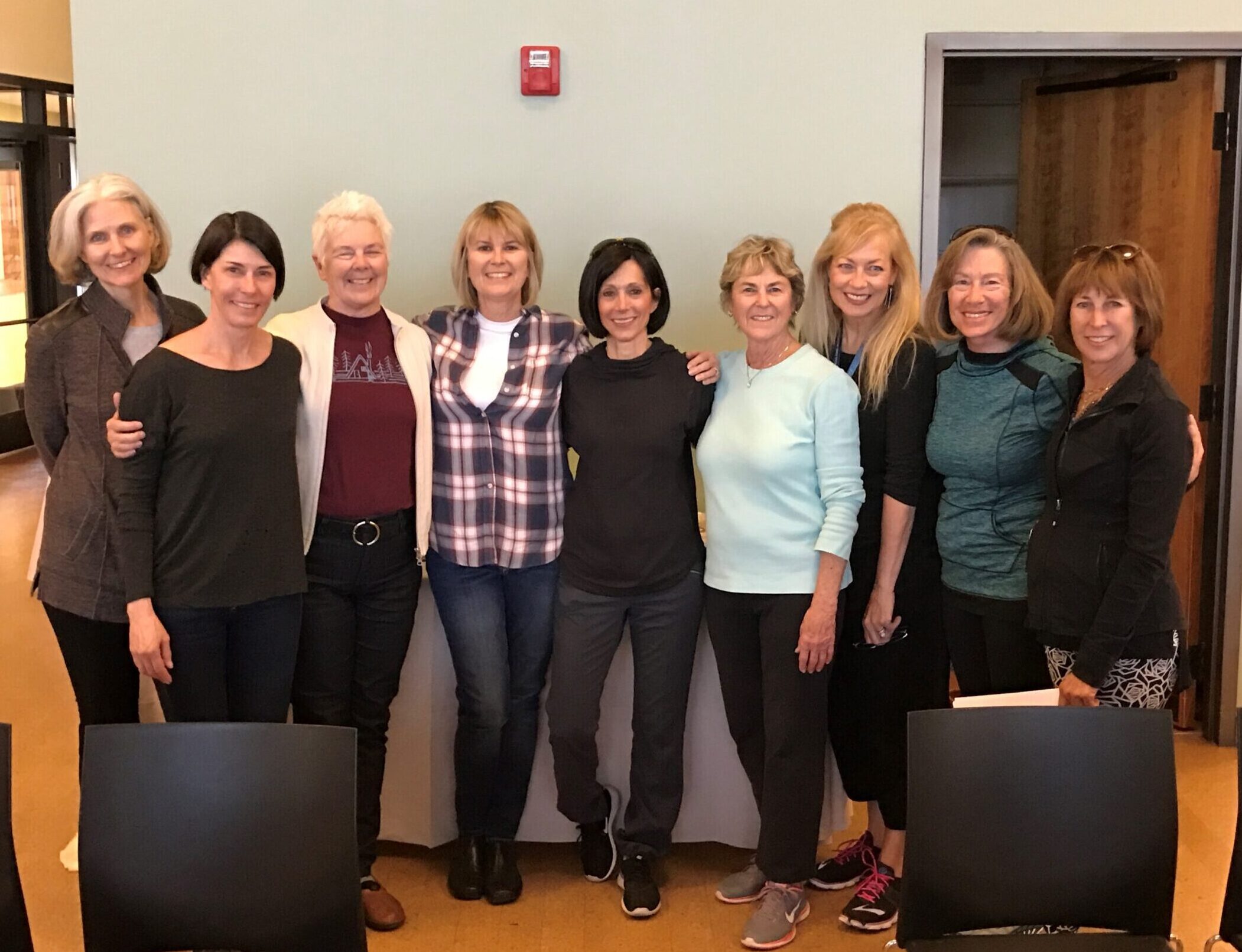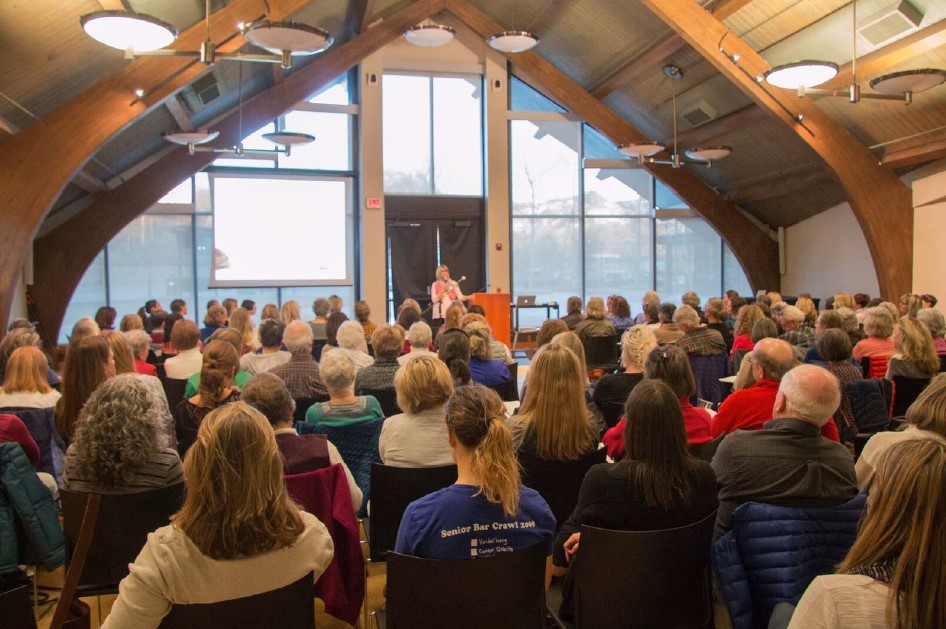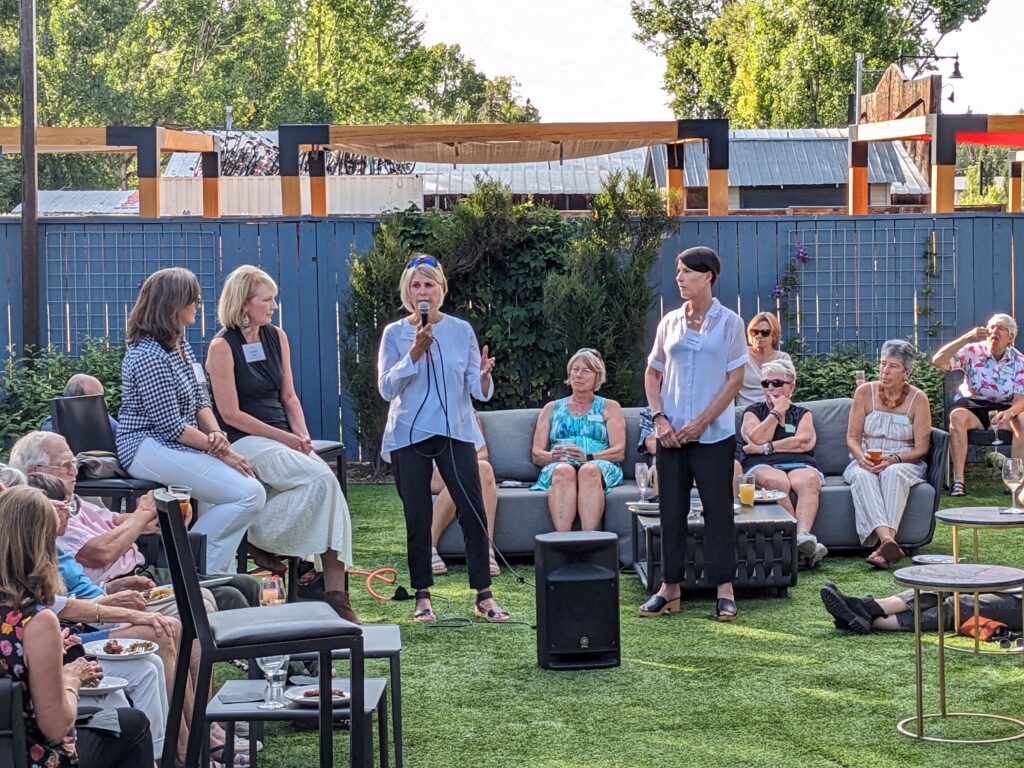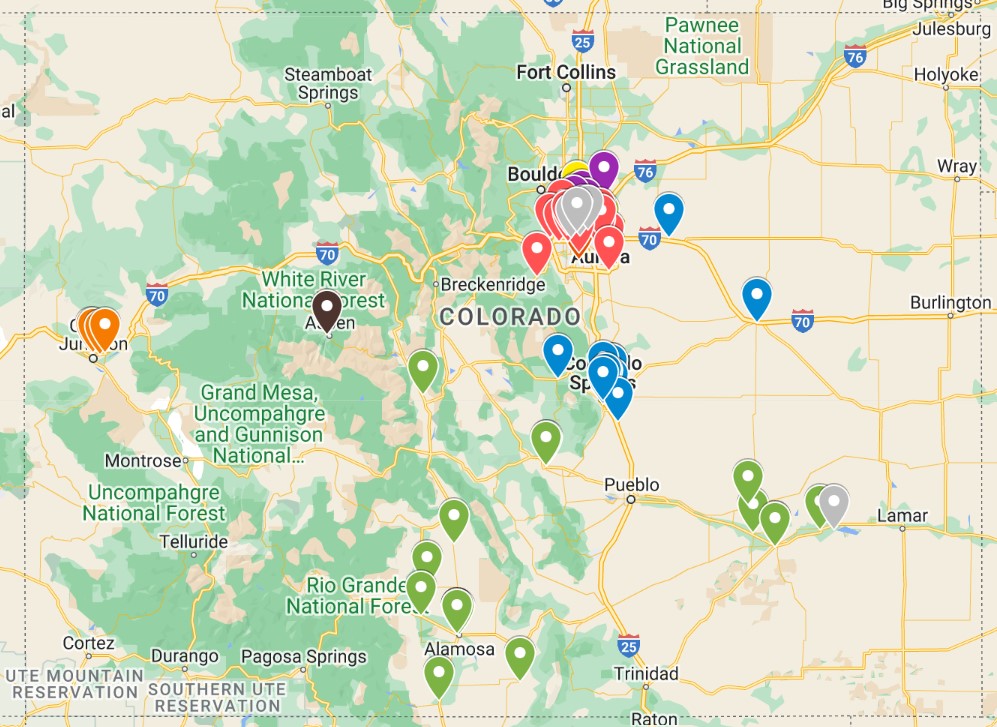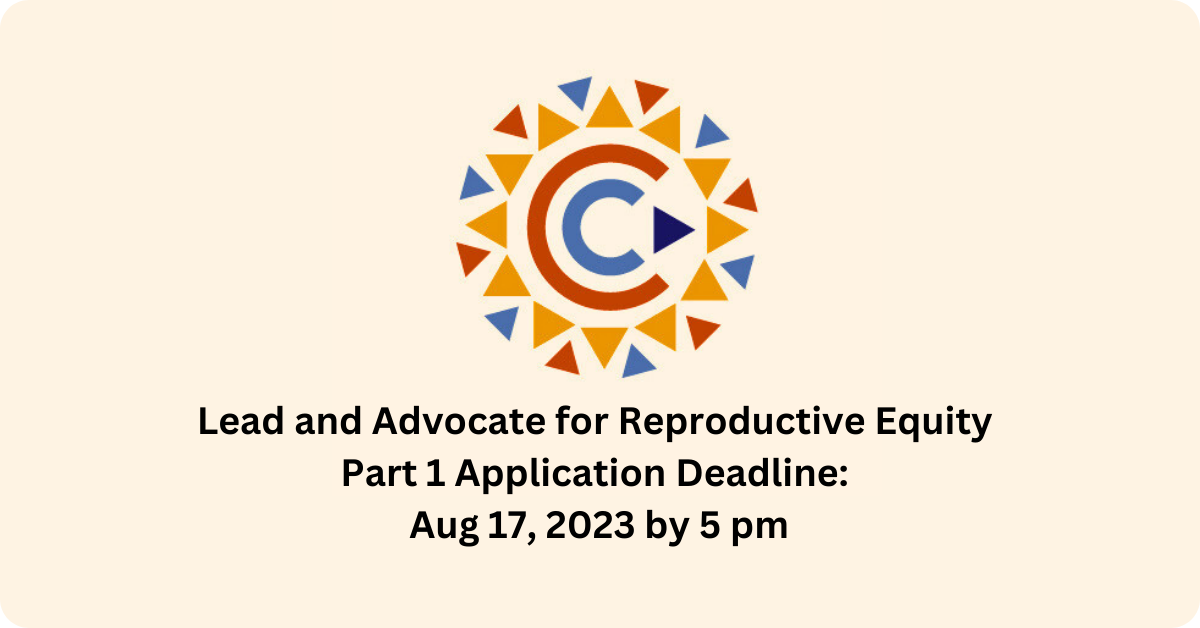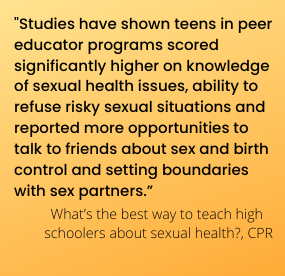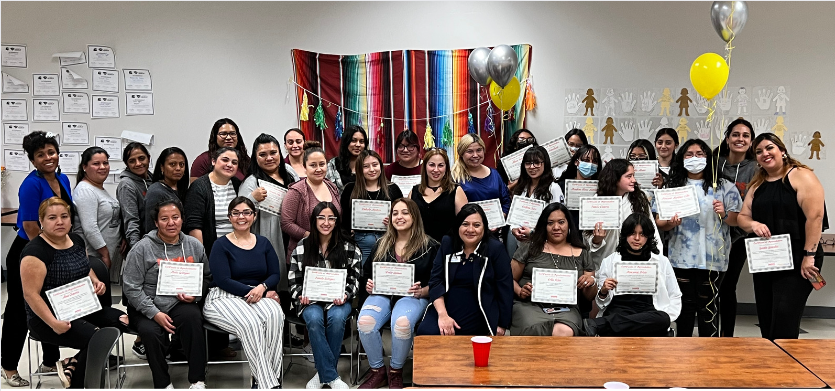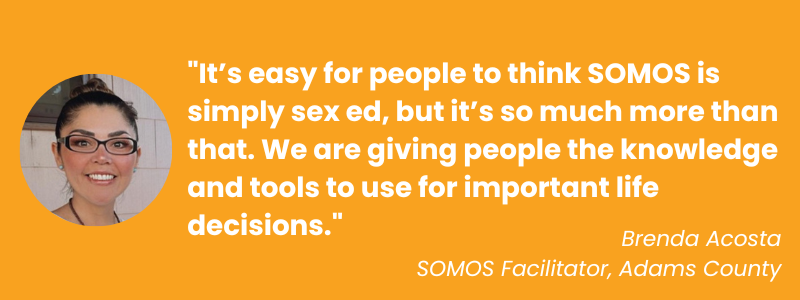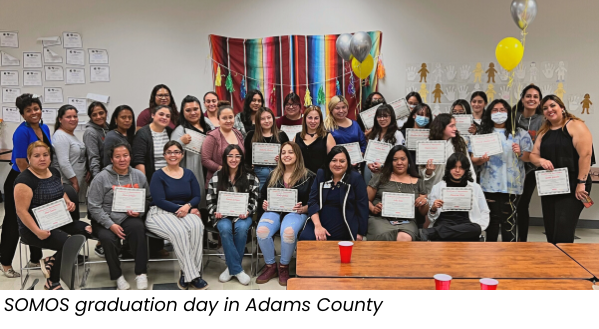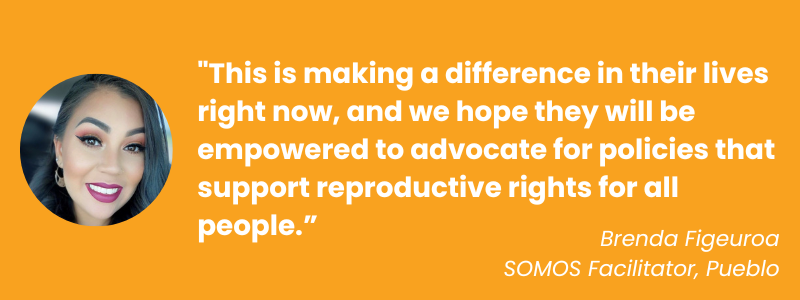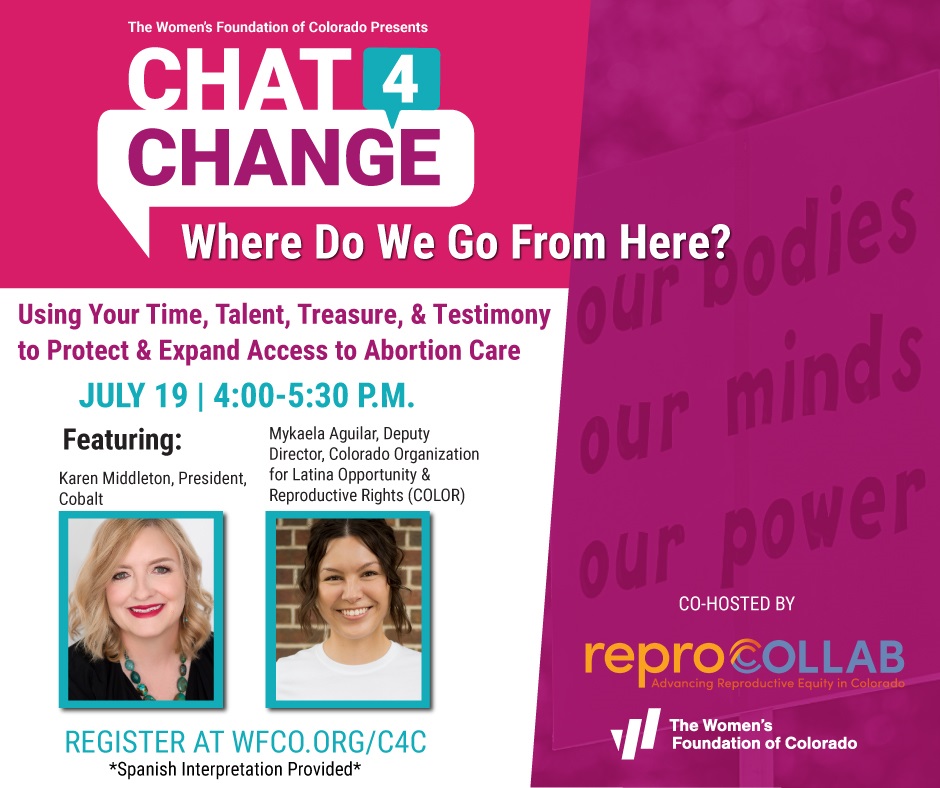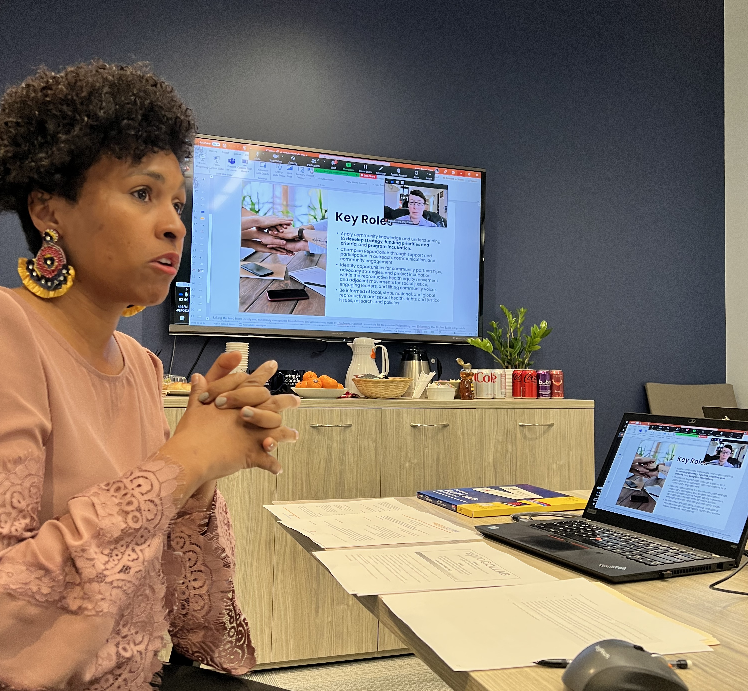$550K in Grants Awarded to Statewide Policy and Advocacy Organizations to Advance Reproductive Health and Rights
Caring for Colorado’s multi-year initiative, ReproCollab, recently awarded $550,000 in grants to 11 organizations working to improve public policies for reproductive health and rights. Funding also was awarded to build and grow grass-roots leadership in reproductive justice in Colorado.
Funding was prioritized to support advocacy efforts for the effective implementation of existing state laws designed to expand access to reproductive health care. This work will ensure that Colorado’s law and policies work for people who need and use reproductive health care. Read more about the Lead and Advocate for Reproductive Equity grantees and their work.
ReproCollab collaborates with funders, clinicians, researchers, community organizations, and grassroots leaders to improve reproductive health care, strengthen advocacy efforts, and develop leadership for reproductive health equity in Colorado. ReproCollab is supported by a collaboration of funders, including Caring for Colorado, The Colorado Health Foundation, the Colorado Trust, and the Craig-Scheckman Family Foundation.


